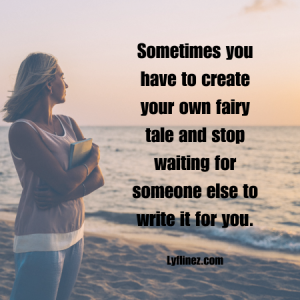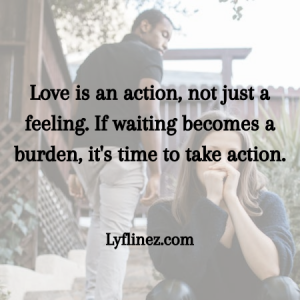Are you stuck in the waiting game, anticipating the magical moment when your loved one finally pops the question on marriage proposal? The desire to get married is a significant milestone for many couples, but the waiting period can be filled with uncertainty and frustration. You are too worried because you want to get married but your partner is delaying the marriage proposal. So in this article, we will discuss when to stop waiting for him to propose. According to research, The marriage rate in the U.S. is approximately 6.0 per 1,000 total population, with around 1,985,072 marriages reported. Embarking on the journey of love often involves the eagerly awaited moment of a proposal. However, what happens when the wait becomes a dilemma?

Why Won’t He Propose?
The proposal dilemma is a common crossroads in many relationships, leaving one partner questioning the future and the other, perhaps unknowingly, avoiding the commitment. Unraveling the mystery behind a partner’s hesitation to propose can be both confusing and emotionally challenging. There are various reasons why someone might be reluctant to take that significant step towards marriage.
It could be personal fears, concerns about timing, or even doubts about the relationship’s readiness for such a commitment.
Delving into the reasons behind why he won’t propose requires open and honest communication, fostering an environment where both partners feel comfortable expressing their thoughts and concerns.
Addressing these issues head-on is crucial for gaining clarity and understanding each other’s perspectives to make informed decisions about the future.
Recognizing the signs that a partner may never propose is a daunting but necessary aspect of the proposal dilemma. These signs can manifest in various behaviors and attitudes, such as a consistent avoidance of conversations about the future, a lack of interest in discussing long-term plans, or an overall resistance to commitment.
It’s essential to differentiate between someone who needs time and someone who may never be ready for marriage. Identifying these signs can empower individuals to make informed choices about the direction of their relationship and whether it aligns with their own goals and aspirations.
Is It The Fear Of Commitment?
The fear of commitment is a powerful force that can significantly impact the dynamics of a relationship.
Whether rooted in past experiences, personal insecurities, or a general aversion to long-term commitments, this fear can lead to hesitation when it comes to proposing.
Understanding and addressing the fear of commitment is pivotal for both partners to create a supportive and nurturing environment.
This involves open conversations, building trust, and potentially seeking external support, such as couples counseling, to navigate through the complexities of commitment apprehensions.
By acknowledging and addressing these fears, individuals can work towards building a foundation of trust and security in their relationship.

When To Stop Waiting For Him To Propose
Recognizing when it’s time to stop waiting is crucial for your emotional well-being. Red flags indicating he’s not ready might include dropping hints but never taking the initiative, consistently avoiding conversations about marriage, or showing signs of resentment while you eagerly wait for a proposal. It’s essential to evaluate these signs objectively.
1- He is Reluctance to Introduce You to Family and Friends
If your partner consistently avoids introducing you to their family and friends, it may be a sign that they are not envisioning a long-term commitment. Meeting significant people in each other’s lives is typically a precursor to moving towards a more serious and committed relationship.
2- He is showing Emotional Distance
Emotional intimacy is a key component of a lasting connection. If you notice a growing emotional distance or a lack of emotional engagement from your partner, it could indicate that they are not fully invested in the relationship or may have reservations about taking it to the next level.
3- He Focuses on Individual Goals Over Shared Ones
While personal goals are essential, a healthy relationship involves a balance of individual and shared aspirations. If your partner consistently prioritizes personal goals over shared ones, it might suggest a lack of alignment in your visions for the future.
4- He Avoids of Wedding-related Conversations
If your partner actively avoids discussions related to weddings, marriage, or plans that involve a long-term commitment, it may be a sign that they are not comfortable or ready to engage in these conversations. This avoidance could indicate a misalignment in your expectations.
5- He Is Unwilling to Compromise
Successful relationships often require compromise and a willingness to meet each other halfway. If your partner consistently exhibits an unwillingness to compromise on important matters or seems inflexible regarding plans, it could be a red flag for their commitment level.
6- He Consistently Postponement of Important Decisions
If there is a pattern of consistently postponing important decisions, such as moving in together, buying a house, or discussing marriage, it may suggest a reluctance on your partner’s part to make significant commitments. Pay attention to the reasons behind these delays and whether they align with your timeline and aspirations.
7- Lack of Shared Vision in Your Relationship
A successful long-term relationship is built on a shared vision for the future. If you and your partner have fundamentally different ideas about where your lives are headed, especially regarding marriage, it may be an indication that you’re not on the same page when it comes to long-term commitment.
8- Unexplained Changes in his Behavior
Sudden and unexplained changes in your partner’s behavior, such as pulling away emotionally or becoming distant, can be concerning. These shifts might indicate underlying issues that need to be addressed, and it’s crucial to understand whether they are related to a fear of commitment.
9- Unequal Investment in the Relationship
A healthy relationship thrives on equal investment from both partners. If you find yourself putting in significantly more effort, whether it’s in terms of time, emotional support, or planning for the future, and your partner is not reciprocating, it may be time to reassess the balance in the relationship.
10- Trust Your Gut Feeling
If you have an ongoing sense of unease or doubt about the relationship, it’s important to trust your gut feeling. While concrete signs are valuable, intuition can often provide insights into the overall health and future trajectory of the relationship. If something doesn’t feel right, it’s worth exploring further and having an open conversation with your partner about your concerns.
11- Lack of Communication
Communication is the cornerstone of any healthy relationship. If there’s a significant lack of communication about the future, especially regarding marriage, it might be an indication that your partner is not ready for that commitment. If attempts to discuss these matters are consistently avoided or dismissed, it’s a signal to pay attention to.
12- Stalled Relationship Progress
Relationships are dynamic and should naturally progress over time. If you find that your relationship has reached a plateau, with little to no growth or movement toward a deeper commitment, it might be time to evaluate whether your partner shares your vision for the future.
13- Unwillingness to Discuss Long-Term Plans
A partner who is genuinely considering marriage will be open to discussing long-term plans. If your attempts to talk about the future are met with discomfort, deflection, or vague responses, it could indicate that your partner is not ready to take the next step.
14- Lack of Personal Growth
Individual growth is a vital aspect of a healthy relationship. If you notice that your partner is not investing in personal development or planning for the future, it may signal a lack of readiness for the commitment that marriage entails.
15- Evaluate Your Own Goals and Needs
While considering your partner’s readiness for marriage, it’s equally important to reflect on your own goals and needs. If waiting for a proposal is causing you significant distress or hindering your personal growth, it might be time to prioritize your well-being and consider whether the relationship aligns with your long-term aspirations.
16- Signs It’s Time to Reevaluate
Waiting for a proposal is a journey that demands patience and understanding, but there comes a point when it’s crucial to reassess the situation. Several signs may indicate that it’s time to stop waiting for him to propose and start considering your own needs and desires.
Before making any decisions, initiate an open and honest conversation with your partner.
Express your feelings, concerns, and desires regarding the future of the relationship. Understanding each other’s perspectives is essential for making informed choices about the path forward.
In some cases, seeking the assistance of a relationship counselor or therapist can provide valuable insights and guidance.
Professional help can facilitate constructive conversations, uncover underlying issues, and assist both partners in navigating the complexities of commitment and marriage.
Ultimately, deciding when to stop waiting for a proposal is a deeply personal choice.
Empower yourself to make decisions that align with your values, goals, and happiness. Whether it involves setting clear expectations, redefining the relationship, or even considering other possibilities, taking control of your narrative is a crucial step towards a fulfilling and authentic life.

How To Break The Waiting Cycle
Waiting for a proposal can feel like being stuck in a loop with no end in sight.
It’s essential to recognize when this waiting cycle becomes counterproductive and takes a toll on your well-being.
Breaking the waiting cycle involves understanding your own limits, communicating your needs, and taking proactive steps to ensure that your time and emotions are valued in the relationship.
The Danger of Waiting Forever
Waiting forever for a proposal might sound romantic in movies, but in real life, it can have some serious drawbacks.
It’s crucial to acknowledge the potential dangers of waiting indefinitely.
Long-term waiting can lead to frustration, resentment, and a sense of unfulfillment.
It’s essential to evaluate whether the relationship is progressing, and if not, consider the impact of waiting forever on your personal growth and happiness.
How to Avoid Wasting Your Time
Your time is precious, and waiting for a proposal shouldn’t feel like you’re wasting it.
To avoid spending too much time in a relationship that might not be heading where you want, it’s important to set clear expectations early on.
Communicate openly about your desires and aspirations, and pay attention to how your partner responds.
If you notice a misalignment in your long-term goals, it’s okay to reassess the situation and consider whether the relationship is truly meeting your needs.
When to Give an Ultimatum
Giving a request is a big step and not something to be taken lightly.
However, there may come a time when you need to set clear boundaries and communicate your needs more assertively.
If you’ve been waiting for a proposal for a significant amount of time and feel that it’s affecting your happiness, having an honest conversation about your expectations and setting a reasonable timeframe can be a way to address the situation.
It’s essential to approach this with sensitivity and a genuine desire to understand your partner’s perspective while also prioritizing your own needs.
Ultimatums should ideally be a last resort after open communication and understanding have been attempted.
You May Find Helpful
- Surefire Signs He Will Never Marry You And Faking Love
- Signs You Should Stay Away From Someone – 17 Alarming Signs
- Warning Signs Of Disloyalty In A Relationship – How To Identify Them
- Signs He Pretends To Love You- How To Spot The Fake Love
Understand Your Partner’s Timeline
Understanding your partner’s timeline is a key component of a healthy relationship.
Everyone moves at their own pace when it comes to major life decisions, and it’s important to be aware of your partner’s values and aspirations.
Open and honest communication is crucial in gaining insight into their timeline for marriage.
Discuss your expectations, share your thoughts on the future, and listen to your partner’s perspective.
Knowing their timeline helps both of you align your goals and ensures you’re on the same page when it comes to the path your relationship is taking.
Average Timeframes for Proposals
While there’s no one-size-fits-all timeline for proposals, it can be helpful to have a general understanding of what’s considered typical.
Many couples get engaged within two to three years of dating, but this varies widely based on individual circumstances.
Factors like age, cultural background, and personal priorities play a significant role.
It’s crucial to be aware of societal expectations but prioritize what feels right for you and your partner.
Every relationship is unique, and the most important thing is that both partners feel ready and committed when taking the next step.
How to Discuss Marriage Without Pushing Him Away
Bringing up the topic of marriage can be tricky, but it’s possible to have a conversation without making your partner feel pressured.
Start by choosing the right time and setting – a relaxed and private atmosphere can encourage open communication.
Share your feelings and thoughts about the future positively, emphasizing the importance of being on the same page.
Ask open-ended questions that invite your partner to share their perspective and feelings about marriage.
Listen actively and be receptive to their thoughts, ensuring the conversation is a dialogue rather than a one-sided discussion.
Remember, the goal is to understand each other’s viewpoints and find common ground, not to impose expectations.
Approach the conversation with empathy and a genuine desire to strengthen your connection.

The Future Of Your Relationship
Taking a step back and looking at your situation objectively is a crucial aspect of planning for the future of your relationship.
It involves a thoughtful examination of where you currently stand, your individual goals, and the dynamics at play.
Objectivity allows you to see the bigger picture, identify patterns, and make decisions based on a clear understanding of your relationship’s strengths and areas that may need attention.
1- Is He Ready to Work Towards Marriage?
Assessing whether your partner is ready to work towards marriage requires open communication and observation.
Look for signs of commitment, such as a genuine interest in your future together, a willingness to discuss long-term plans and active participation in building a shared life.
Conversations about goals, values, and timelines can provide insights into your partner’s readiness for the commitment that marriage entails.
It’s essential to ensure that both partners are on the same page and actively engaged in the journey towards a lasting and fulfilling relationship.
2- Making Decisions for Your Long-Term Happiness
When it comes to the future of your relationship, prioritizing your long-term happiness is paramount.
This involves making decisions that align with your values, aspirations, and emotional well-being.
Consider whether the current trajectory of the relationship meets your needs and whether you both share similar visions for the future.
If there are concerns or misalignments, it’s important to address them openly and honestly.
Making decisions for your long-term happiness may involve setting clear expectations, redefining goals, or, in some cases, considering whether the relationship is contributing positively to your overall well-being.
Trusting your instincts and taking proactive steps towards your happiness is a crucial aspect of shaping the future of your relationship.
3- Relationship Advice: Waiting vs. Moving On
Deciding whether to wait or move on in a relationship is a significant crossroads, and it requires careful consideration. Here’s some advice to help you navigate this challenging decision:
Getting Clarity on Your Feelings
Start by getting crystal clear on your own feelings.
Reflect on what you truly want from the relationship and whether your current situation aligns with your long-term goals.
Ask yourself if waiting for a proposal is hindering your personal growth and happiness.
Understanding your emotions and motivations is a crucial first step in making a decision that serves your best interests.
Signs He’s Not the One
Recognizing signs that he may not be the one for a long-term commitment is essential in making an informed decision.
Look for consistent patterns of avoidance when it comes to discussions about the future, a lack of interest in shared goals, and emotional distance.
If your partner shows resistance to working towards a shared future or exhibits behaviors that are misaligned with your values, it may be an indication that waiting may not lead to the relationship you desire.
Seeking Advice from Friends and Family
Your friends and family can offer valuable perspectives on your relationship.
Share your thoughts and feelings with those you trust, and be open to their insights.
Sometimes, those close to you can provide an objective viewpoint and offer advice based on their own experiences.
However, keep in mind that while external advice is valuable, the ultimate decision rests with you.
Consider the feedback you receive and trust your instincts and desires when determining whether to wait or move on.
Evaluating the Relationship’s Overall Health
Consider the overall health of the relationship beyond the proposal issue.
Assess factors such as communication, emotional connection, and mutual support.
If waiting for a proposal is the only point of contention, it may be worth addressing this directly with your partner.
If there are deeper issues affecting the relationship, it’s crucial to evaluate whether these can be resolved and whether both partners are willing to invest in a healthy and fulfilling partnership.
Communication is Key
Regardless of the decision you make, open and honest communication with your partner is crucial.
Share your thoughts and feelings, express your desires for the future, and listen to your partner’s perspective.
A genuine and transparent conversation can provide clarity and help both partners understand each other better, facilitating a decision that aligns with the needs and aspirations of both individuals.
Conclusion
The decision of when to stop waiting for him to propose is deeply personal and often complex. Navigating this crossroads requires a delicate balance of self-reflection, open communication, and an understanding of one’s own needs and aspirations.
It is essential to recognize the signs that waiting may be hindering personal growth or that the relationship may not be progressing as desired. Trusting your instincts and seeking clarity on your feelings is crucial.
Whether you decide to wait with patience, engage in open dialogue with your partner, or consider moving on, the key is to prioritize your long-term happiness. Ultimately, the journey of love involves making decisions that align with your values and contribute to a fulfilling and authentic relationship.
F.A.Qs
Q: How long is too long to wait for a proposal?
The duration to wait for a proposal varies from person to person and relationship to relationship. However, if you find that the wait is causing distress or hindering personal growth, it might be worth reassessing the situation.
Q: What are signs that waiting for a proposal may not be productive?
Signs include a lack of communication about the future, a stalled relationship progression, consistent avoidance of discussions about marriage, and an unequal investment in the relationship.
Q: How can I discuss marriage without pressuring my partner?
Initiate open and honest conversations about the future in a relaxed setting. Ask open-ended questions, express your feelings, and be receptive to your partner’s thoughts. Emphasize understanding rather than imposing expectations.
Q: When is it appropriate to give an ultimatum about marriage?
Giving an ultimatum is a serious step and should be considered carefully. It may be appropriate if you’ve had open communication, set clear expectations, and feel that your needs are not being met after a reasonable period.
Q: Should I seek advice from friends and family on when to stop waiting for a proposal?
Seeking advice can be beneficial, as friends and family may offer valuable perspectives. However, remember that the decision is ultimately yours. Consider external advice but trust your own instincts and desires when making decisions about your relationship.

